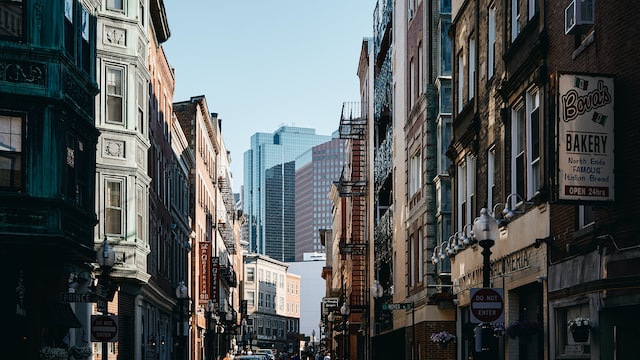Boston Condos Remain Cheaper Than Houses — And the Gap Is Growing

For a long time, Boston's housing market has been one of the most competitive in the country -- but recent data shows something interesting. Condos in Boston remain more affordable than single-family homes. The average price of a single-family home in Boston is around $3.4 million, while condos and townhomes tend to sit at just under $1.2 million. That's nearly a three-to-one price difference, making condos a great choice for first-time Boston homebuyers. But what's keeping condo prices this low, and can it continue into the future?
Boston's Housing Market at a Glance
First, let's take a look at Boston housing market trends across the board. Things have been on an upward trajectory in terms of Boston house prices for years, and 2025 has proven no exception.
House prices in Greater Boston continue to climb, with the prices of single-family homes experiencing the steepest increases. The limited availability of land and high demand keep the pressure high, especially in choice neighborhoods close to transportation and universities.
Buyers in Boston face a particularly competitive environment, especially in those aforementioned choice neighborhoods, where inventory is tighter than the national average. Homes that are well-priced and move-in ready often receive multiple offers quickly.
Condos also show more stable demand and pricing compared to single-family homes. Where single-family homes tend to see more dramatic fluctuations, condos remain relatively resilient.
Finally, buying a condo is still cheaper than renting in Boston. It's not just the Boston housing market -- rental prices are hitting historic highs everywhere, and condo ownership is increasing in popularity as a long-term financial strategy.
What's Driving the Condo Price Trend?
So now that we've established that buying a condo is cheaper and more affordable than both renting and buying a single-family home in Boston, the question remains: why?
There are a few factors at work here. First, construction costs tend to be higher for houses. Material and labor costs have surged in the wake of the pandemic, making freestanding homes a lot more expensive to build than multi-unit developments. As a result, developers have focused more on condos.
Those selfsame developers are also shifting toward compact, energy-efficient condos, which appeals to buyers due to the lower utility costs, walkable locations, and modern layouts. Condo price increases year-over-year have also remained modest compared to single-family homes, which keeps them within reach of more buyers.
Finally, it's worth noting that more young professionals, empty-nesters, and "downsizers" have come to prefer more low-maintenance living -- a particular strength of condominiums.
The Appeal of Condos
Speaking of the appeal of condos, price isn't the only reason they're popular -- they also offer some lifestyle advantages that make them more suited to modern living.
For one thing, they're low-maintenance -- while there are some additional costs to condo living, they're largely free of the burden of yard work, snow removal, exterior repairs, and other tasks, which makes them ideal for busy professionals and retirees alike.
Condos also tend to be in some of Boston's most desirable areas, close to:
- The MBTA Red, Green, and Orange Line stations
- Universities and hospitals
- Major employers in the tech, finance, and education sectors
- Cultural attractions, parks, and shopping districts
Condos also offer shared amenities, such as rooftop decks, fitness centers, secure parking, or even concierge service (depending on the neighborhood) -- services and amenities not at all common to single-family homes. Further, that low-maintenance lifestyle means that owners can just lock the door and leave for days or weeks if they want to, without the need to worry about lawn maintenance, repairs, or snow removal.
Looking Forward to 2026
So what does the condo market look like headed into 2026? The outlook for buyers is good, because industry analysts expect condos to remain Boston's most affordable housing option. As long as the supply of single-family homes remains limited, which will in turn keep prices at their currently record highs, condos will be the most accessible choice for buyers coming into the market.
Condos are also likely to stay popular with investors, thanks to high rental demand from medical professionals, young workers, and students. 2026 might also see a further easing of interest rates, meaning more first-time buyers could shift from renting to owning -- which will bring demand up even further.
Finally, with Boston's ongoing and likely perpetual shortage of housing, combined with the strong job market, condos are likely to continue to hold their value over time, even if growth were to suddenly explode.
With single-family homes topping $3 million or more in the more affluent neighborhoods, the average condo is still a bargain at just under $1.2 million. The price point is competitive but manageable, and the added stability and amenities make condos a strong contender for first-time buyers, downsizers, and investors.
Published 11/17/25